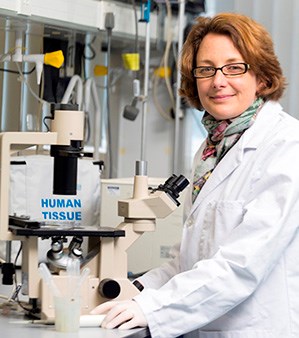InoCardia, a Coventry University spinout that combines technical excellence and biological understanding to increase the safety of new drugs, has received £300,000 from Mercia Fund Management, a leading technology investor with a focus on the Midlands, North and Scotland.
The funding, which follows on from an SEIS investment made by Mercia in 2013, will be used to build the management and technical team in order to capitalise on interest from pharmaceutical research bodies, as well as to help progress InoCardia’s suite of products into commercialisation.
InoCardia, under the expert supervision of Professor Helen Maddock, Professor of Cardiovascular Physiology and Pharmacology at Coventry University, has developed a model for assessing drug effects on heart muscle tissue. Known as the “work-loop model”, it uses a contractility assay to measure heart muscle contraction and relaxation in normal, ageing and diseased tissue. It is currently the only relevant human model of cardio-toxicity available worldwide.
An assessment of heart contraction is a vital part of initial drug testing, as it enables researchers to identify drugs or chemical compounds that could potentially be toxic to an important part of the cardiovascular system.
Adverse drug effects on the cardiovascular system are a major cause of attrition in drug discovery and development, leading to massive drug withdrawals and costing pharmaceutical companies billions in lost revenues and legal fees.
InoCardia’s model is able to determine the likely toxicity of new drugs to the cardiovascular system before clinical testing, thus reducing the likelihood of attrition, saving billions in revenue and improving patient safety, all without the need for prior human and animal trials.
InoCardia has also recently been awarded funding of up to £700,000 by the UK’s innovation agency, Innovate UK, through the Collaborative Research and Development (CR&D) competition: ‘Development of non-animal technologies’. The competition is part of the Non-Animal Technologies (NATs) programme that has been developed by Innovate UK in collaboration with the National Centre for the Replacement, Refinement & Reduction of Animals in Research (NC3Rs).
The NATs programme has been established to accelerate the commercial development and application of non-animal technologies for drug and chemical development to improve prediction of efficacy and safety. The current award was made to support collaborative research and development projects and was co-funded by Innovate UK, NC3Rs, MRC and EPSRC.
Dr Nicola Broughton, Investment Director and Head of Technology Transfer at Mercia Fund Management, said:
“We are delighted to provide further capital to InoCardia, which has demonstrated significant commercial interest in its core technology and service provision. This sector is ripe for innovation, with the commercial traction and product development to date confirming the capability of InoCardia’s Founder and CSO, Professor Helen Maddock, and her department to innovate and develop products with the potential to reduce the cost of accelerating drugs into clinical development and ultimately saving lives.”
Professor Helen Maddock, Founder and CSO of InoCardia, said:
“It is with great pleasure that we accept further investment from Mercia. Their support has been invaluable as we seek to commercialise our research and build partnerships with pharmaceutical organisations.
“We also look forward to working with Nicola Broughton, who has extensive experience in working with university spinouts on the commercialisation and development of their research.”
